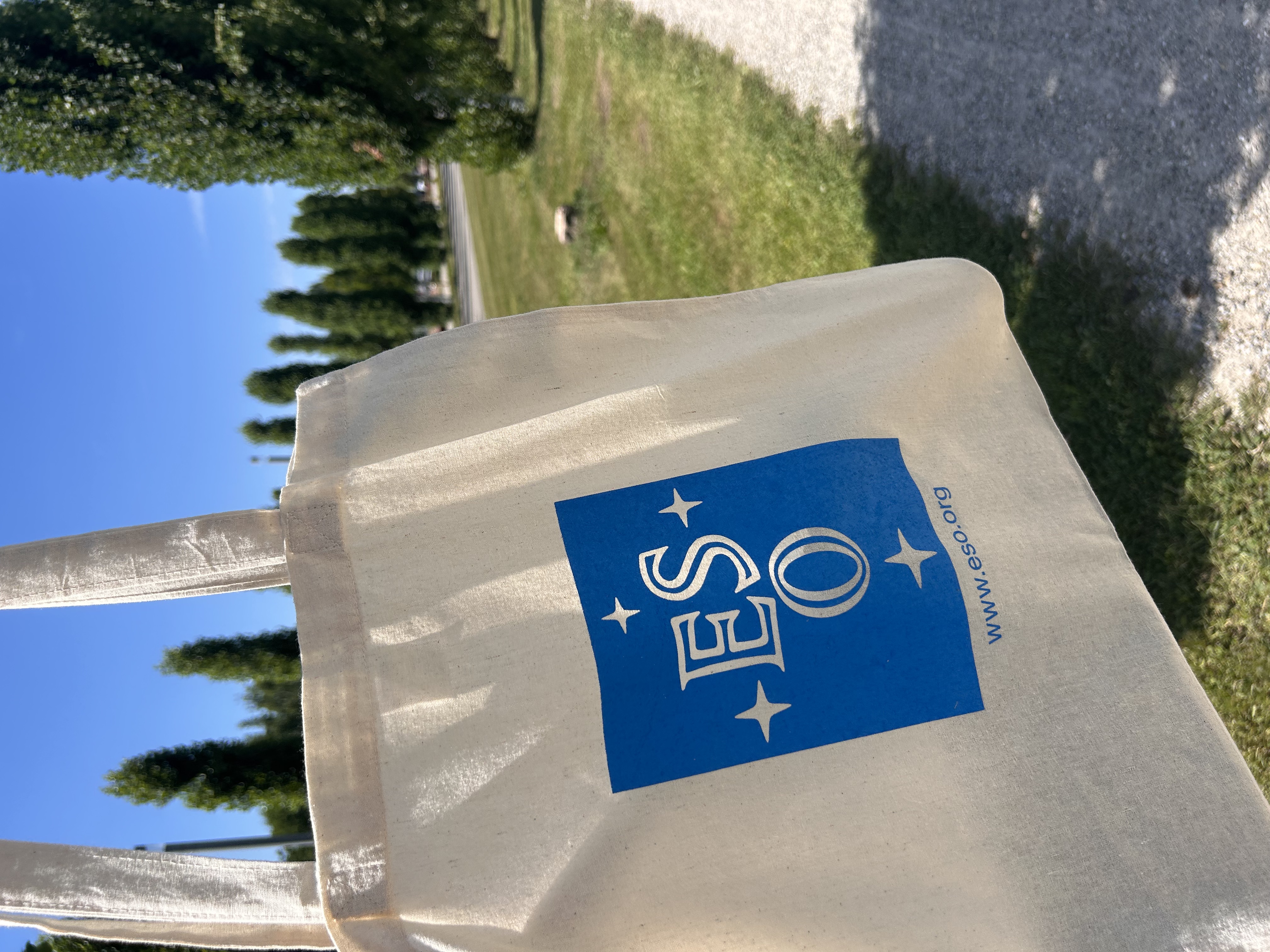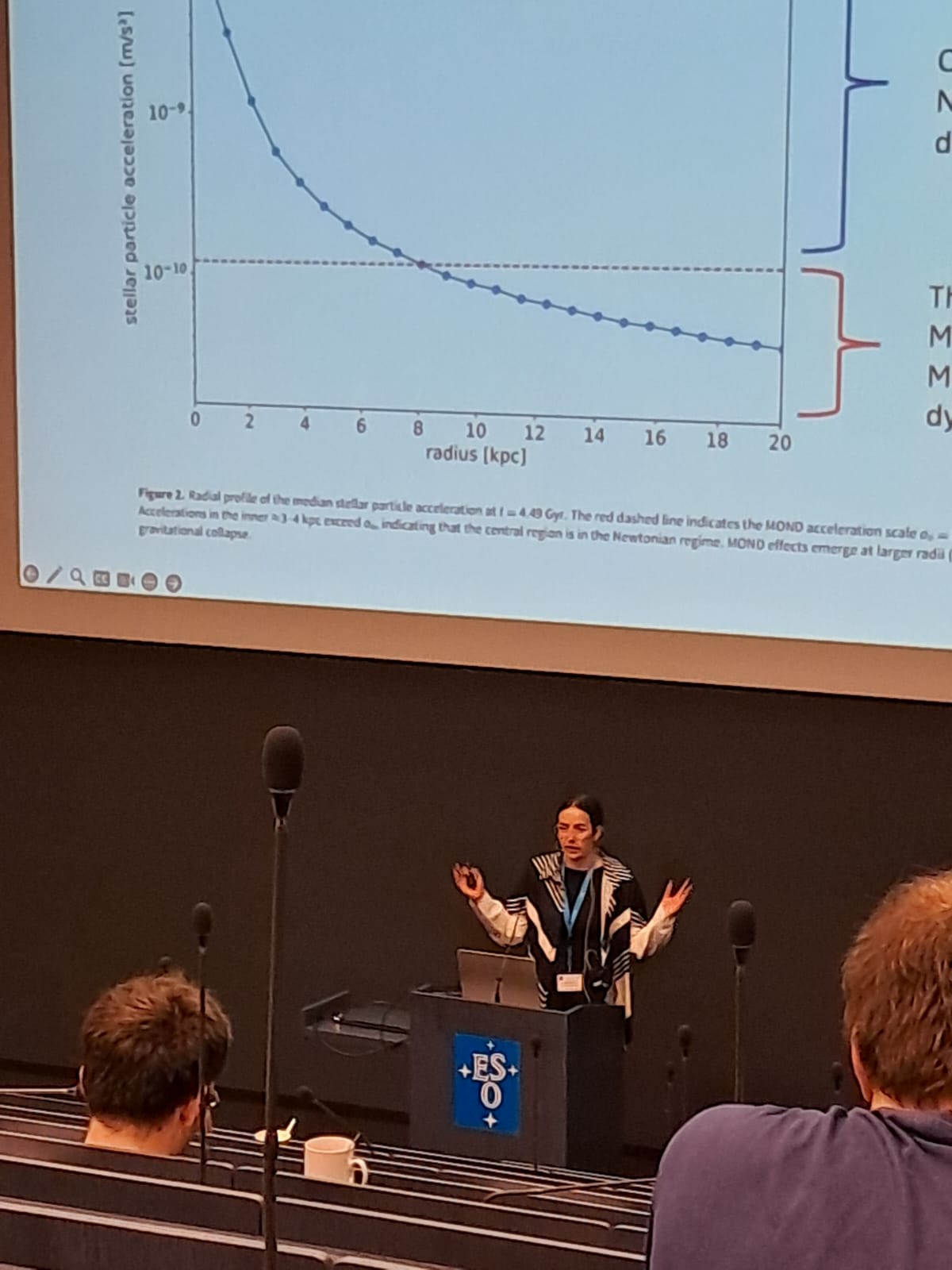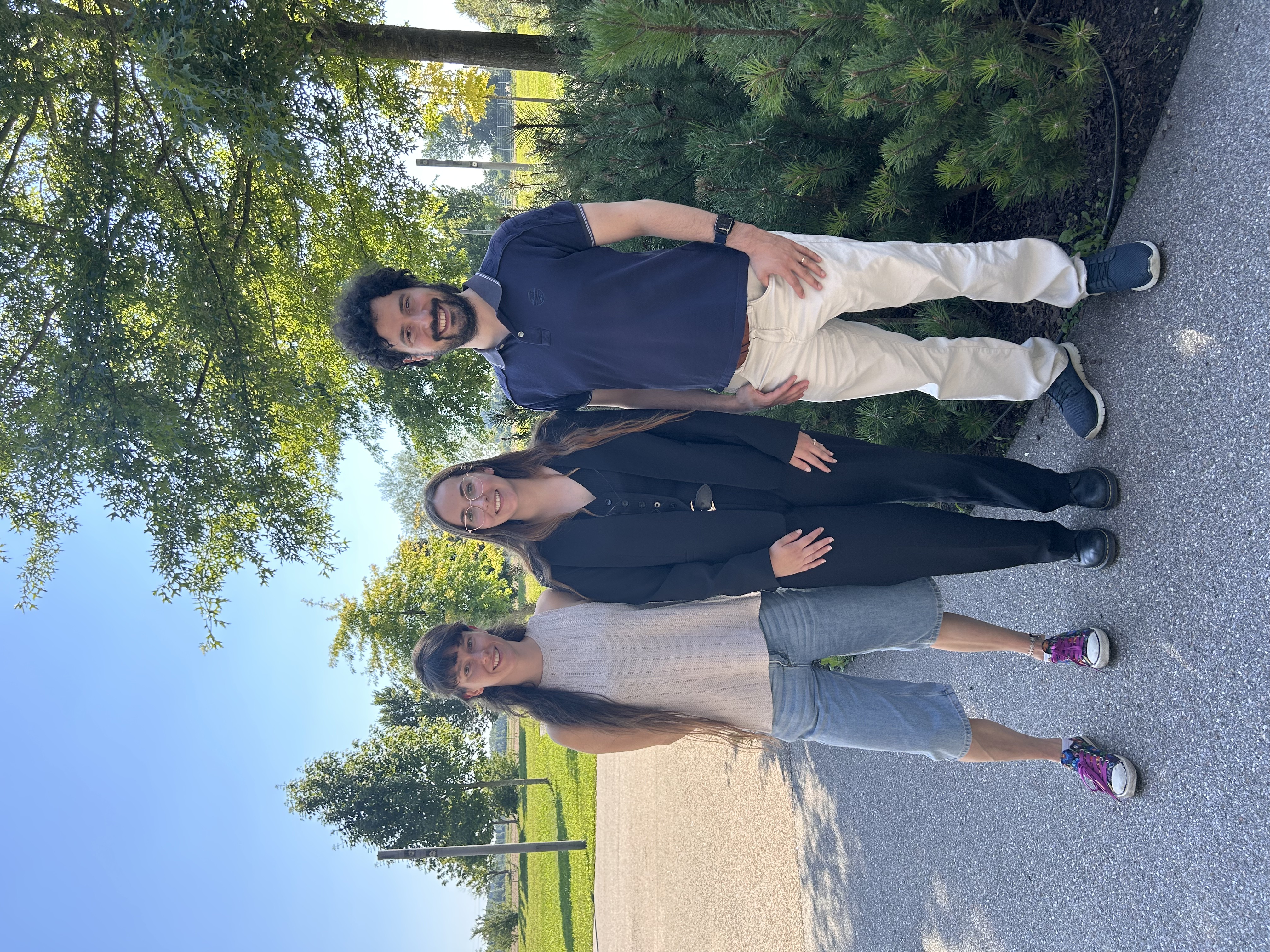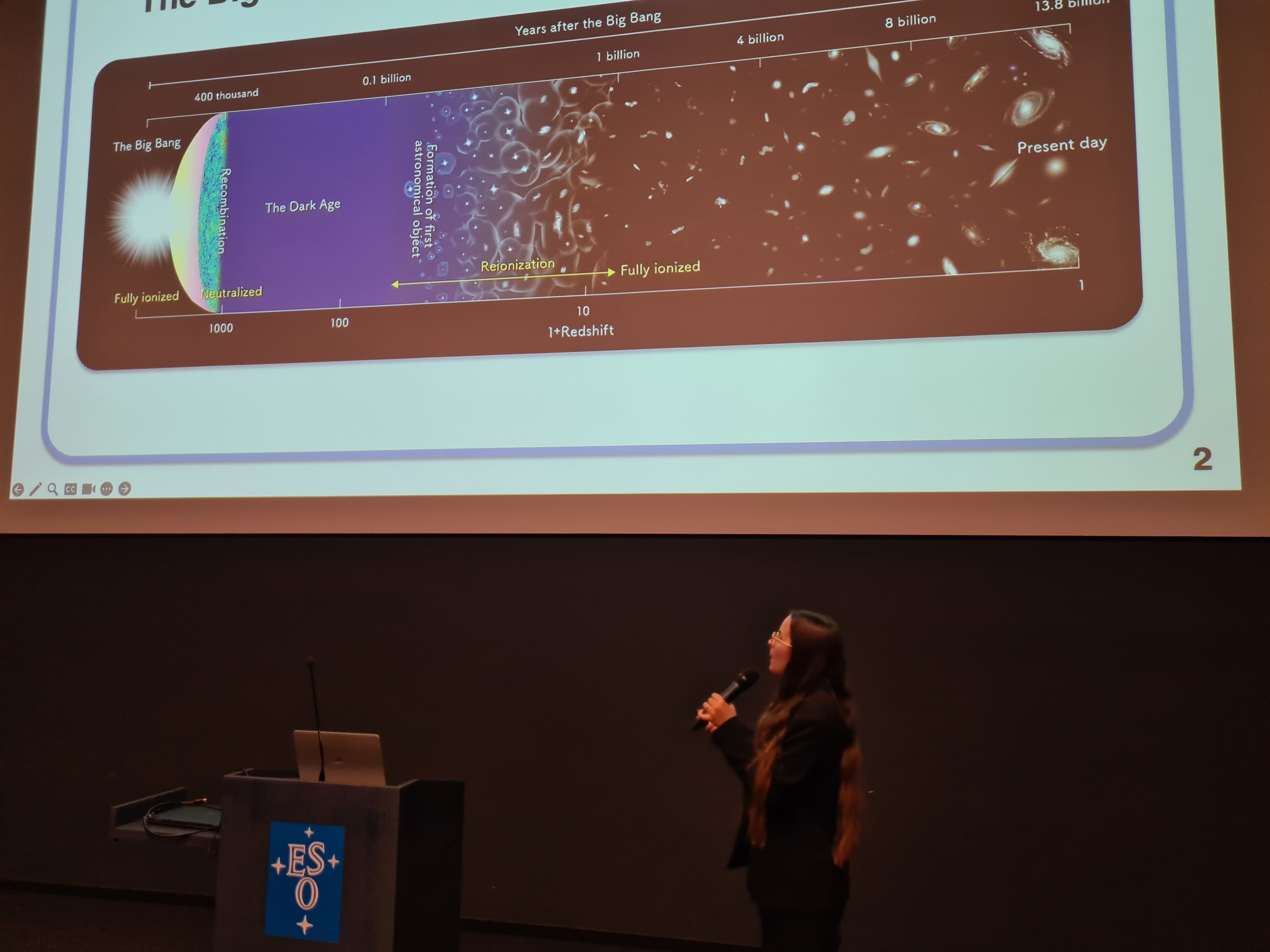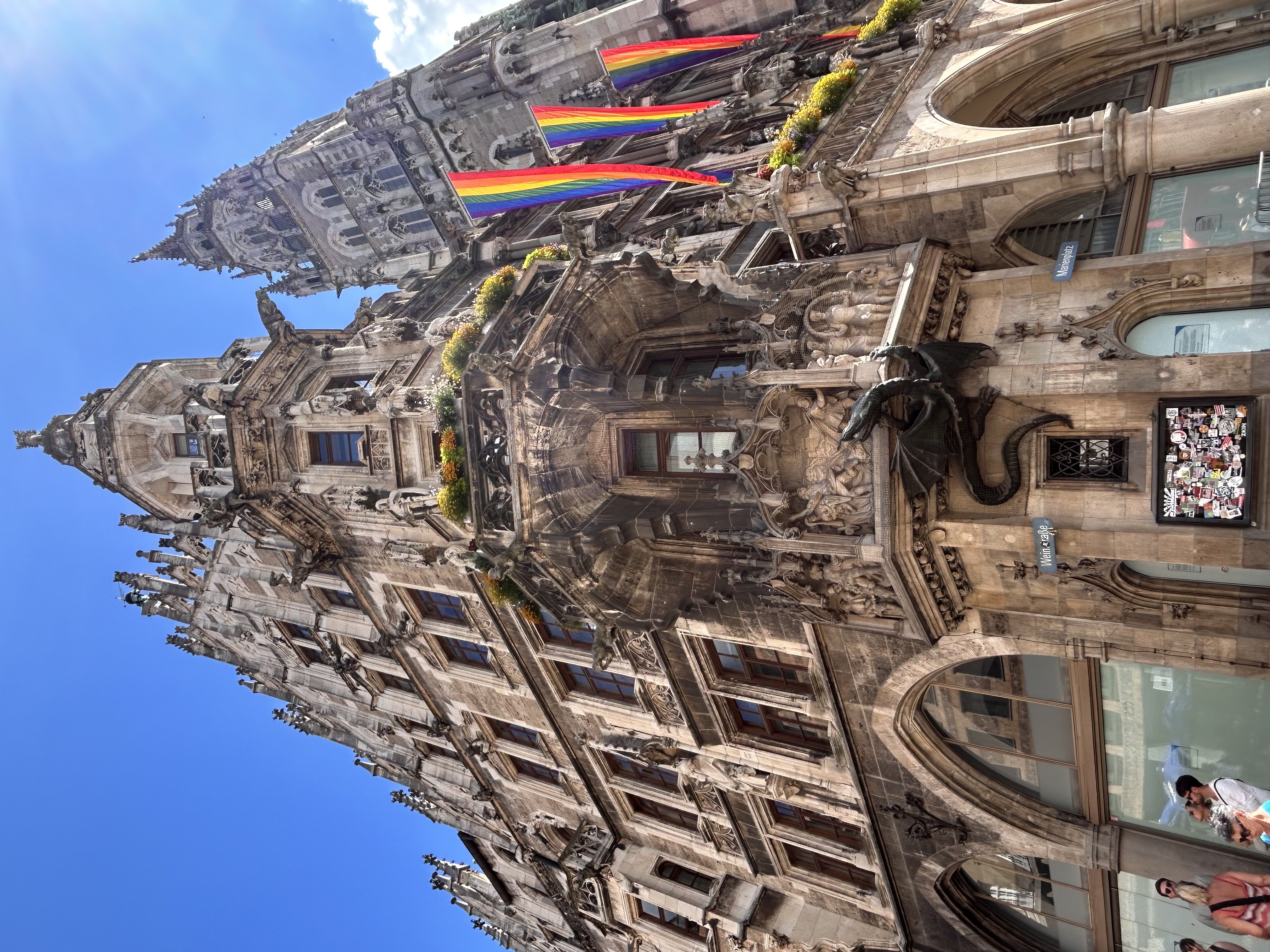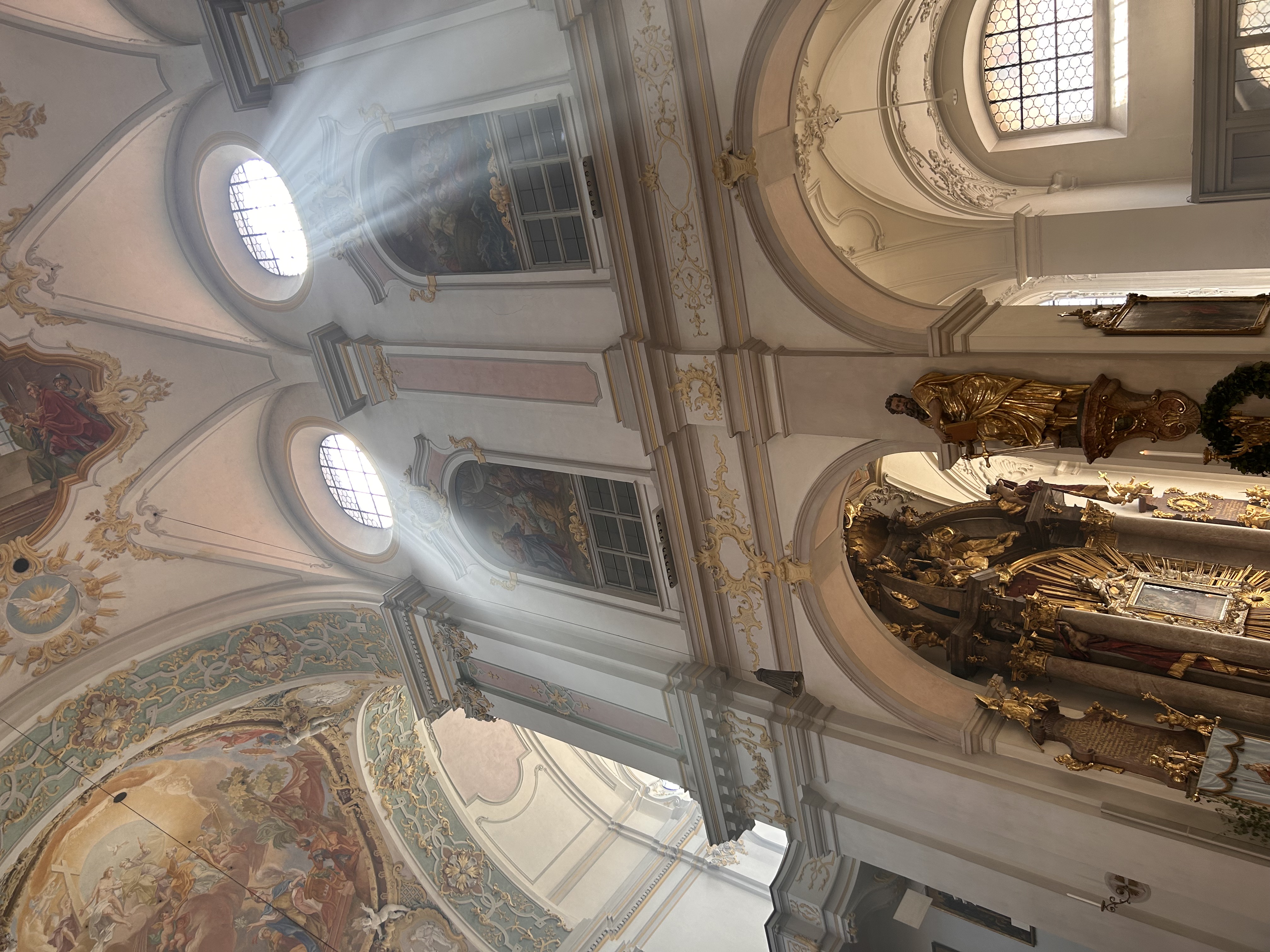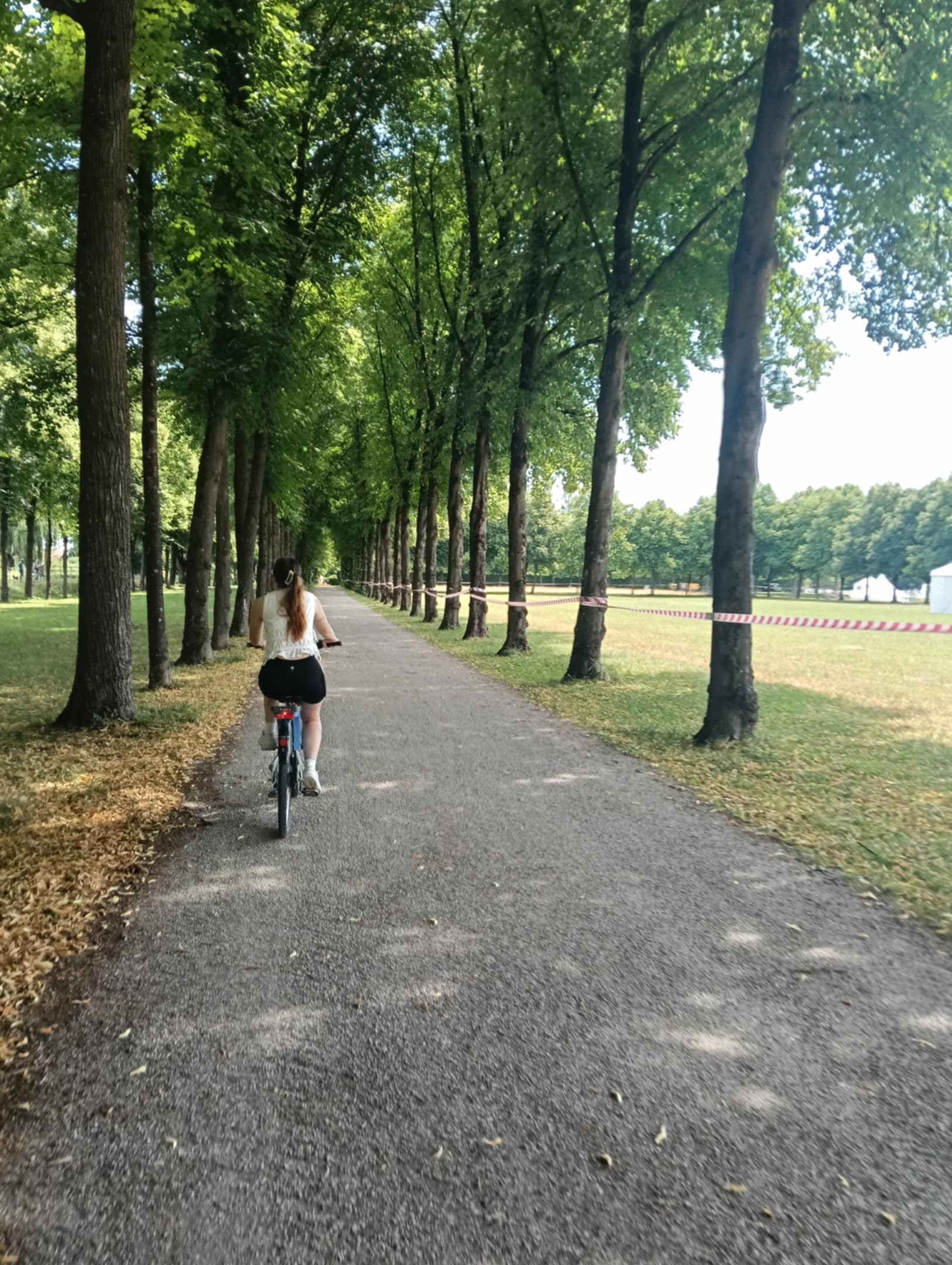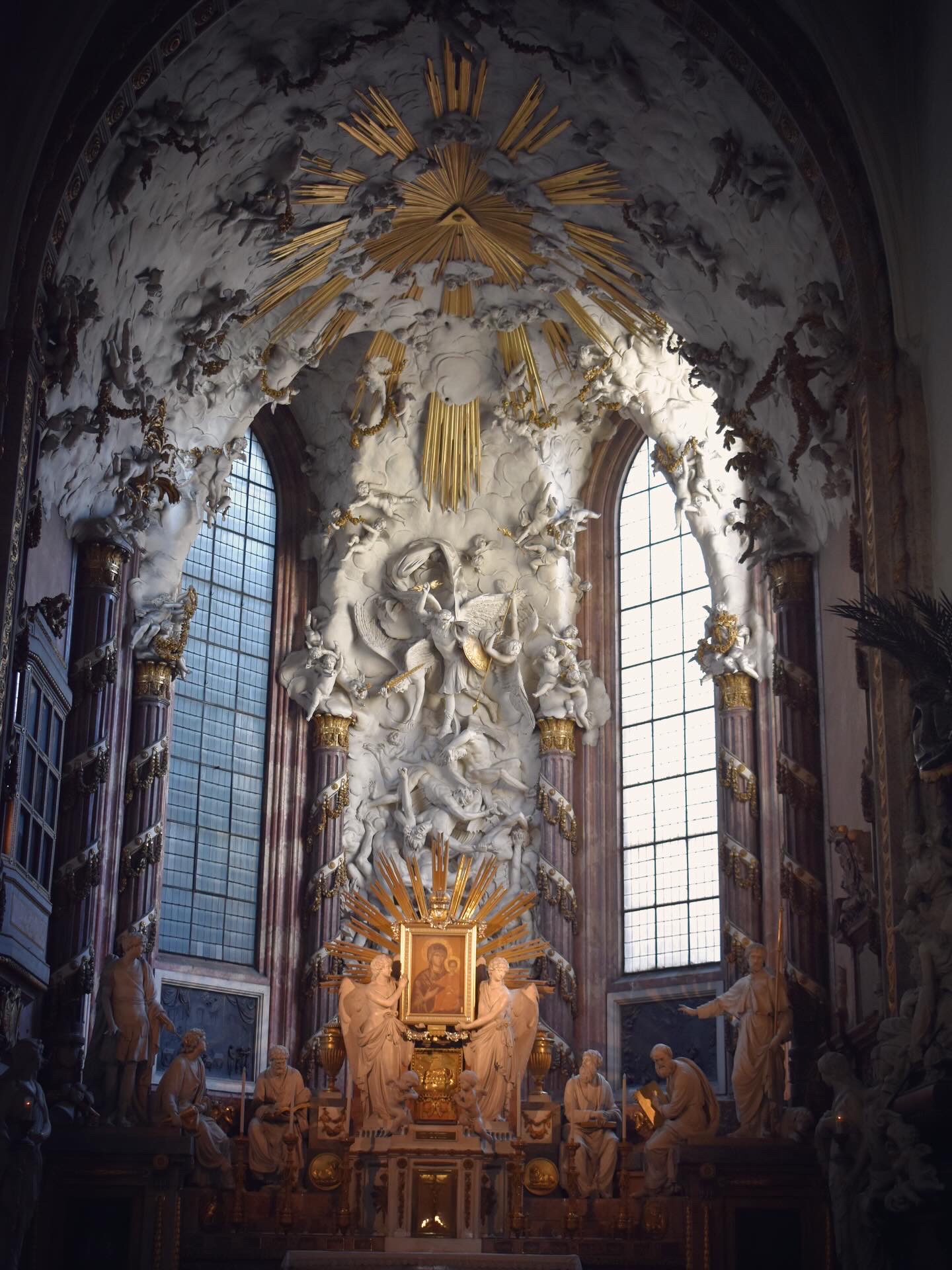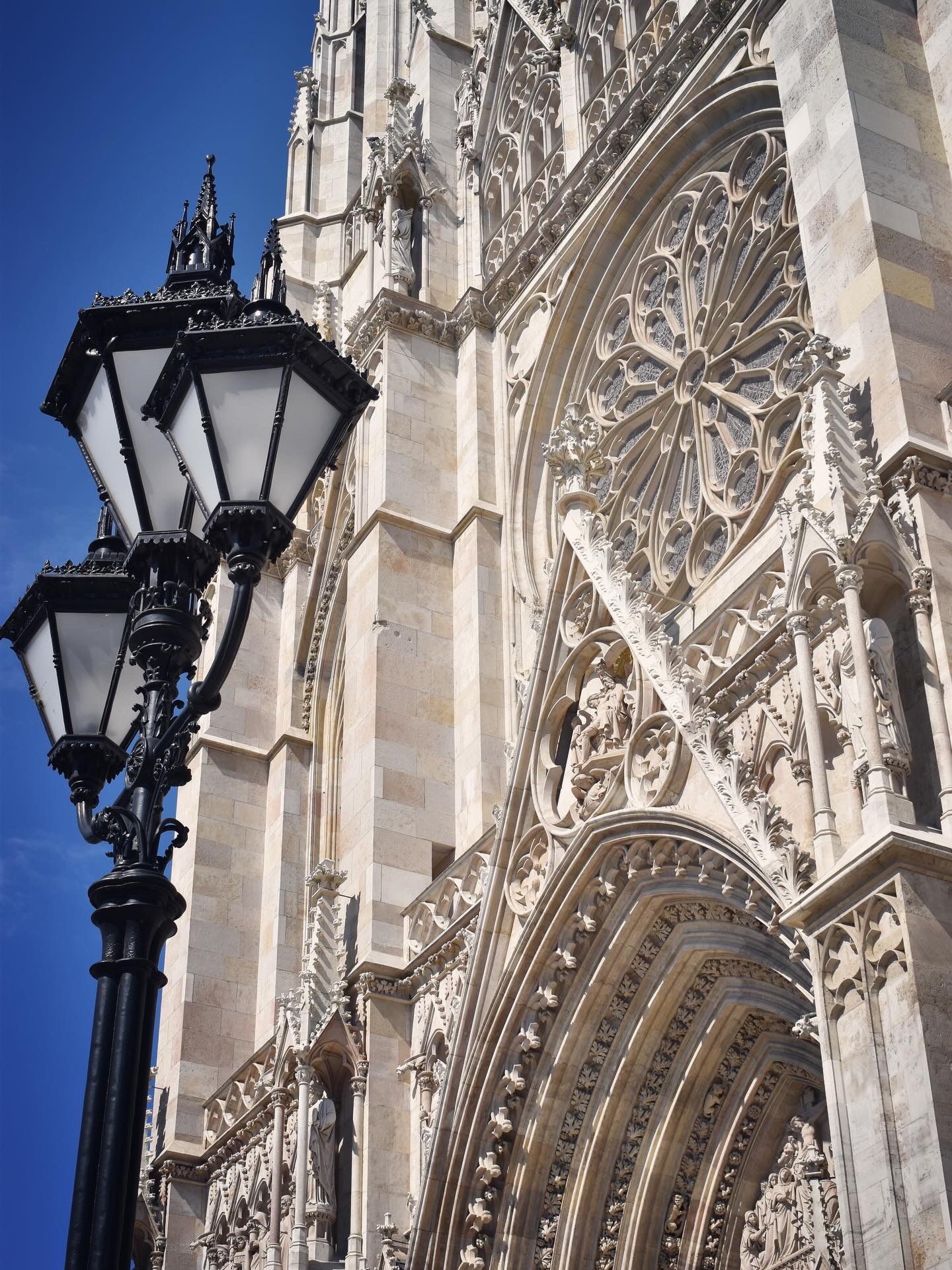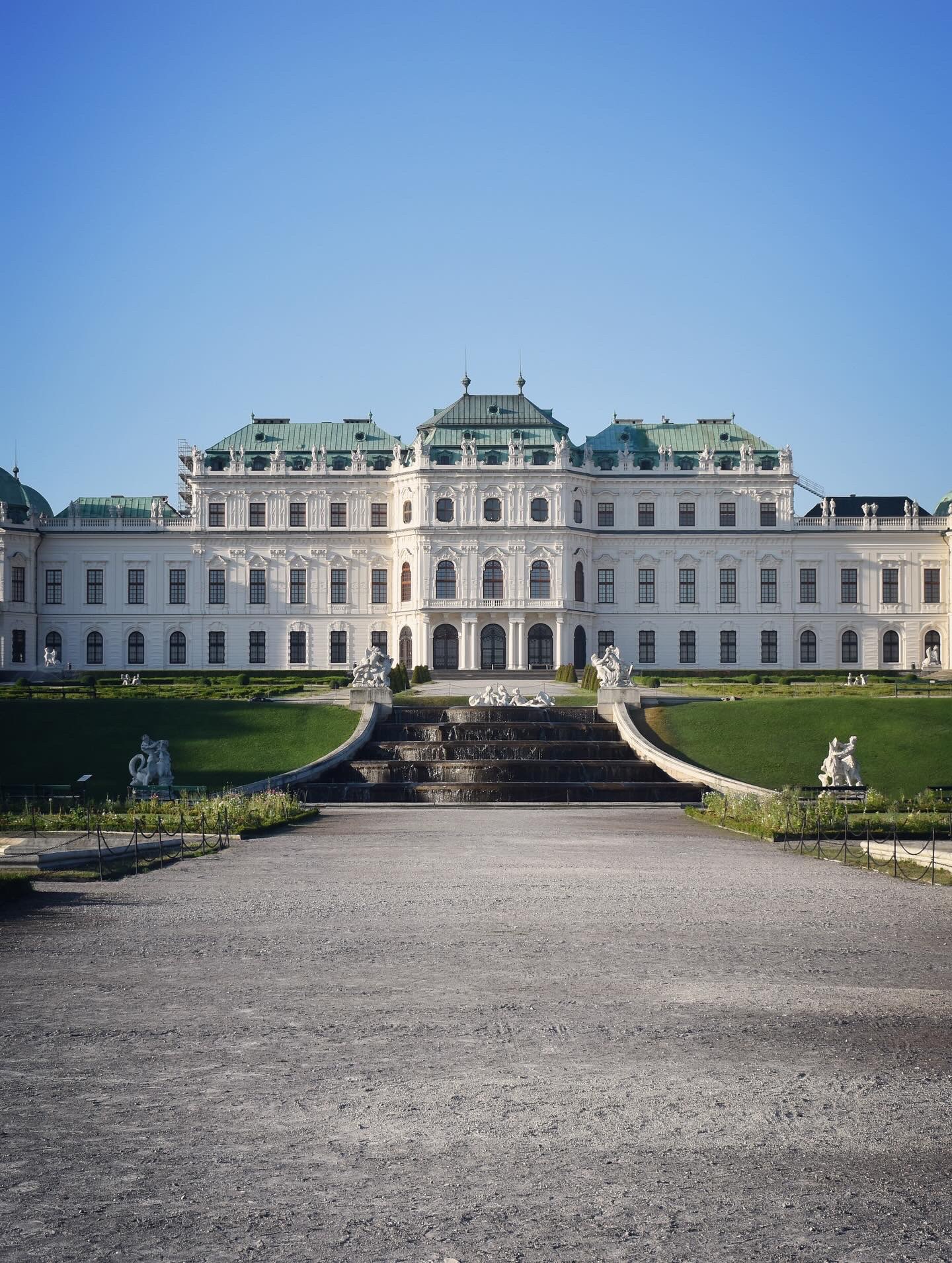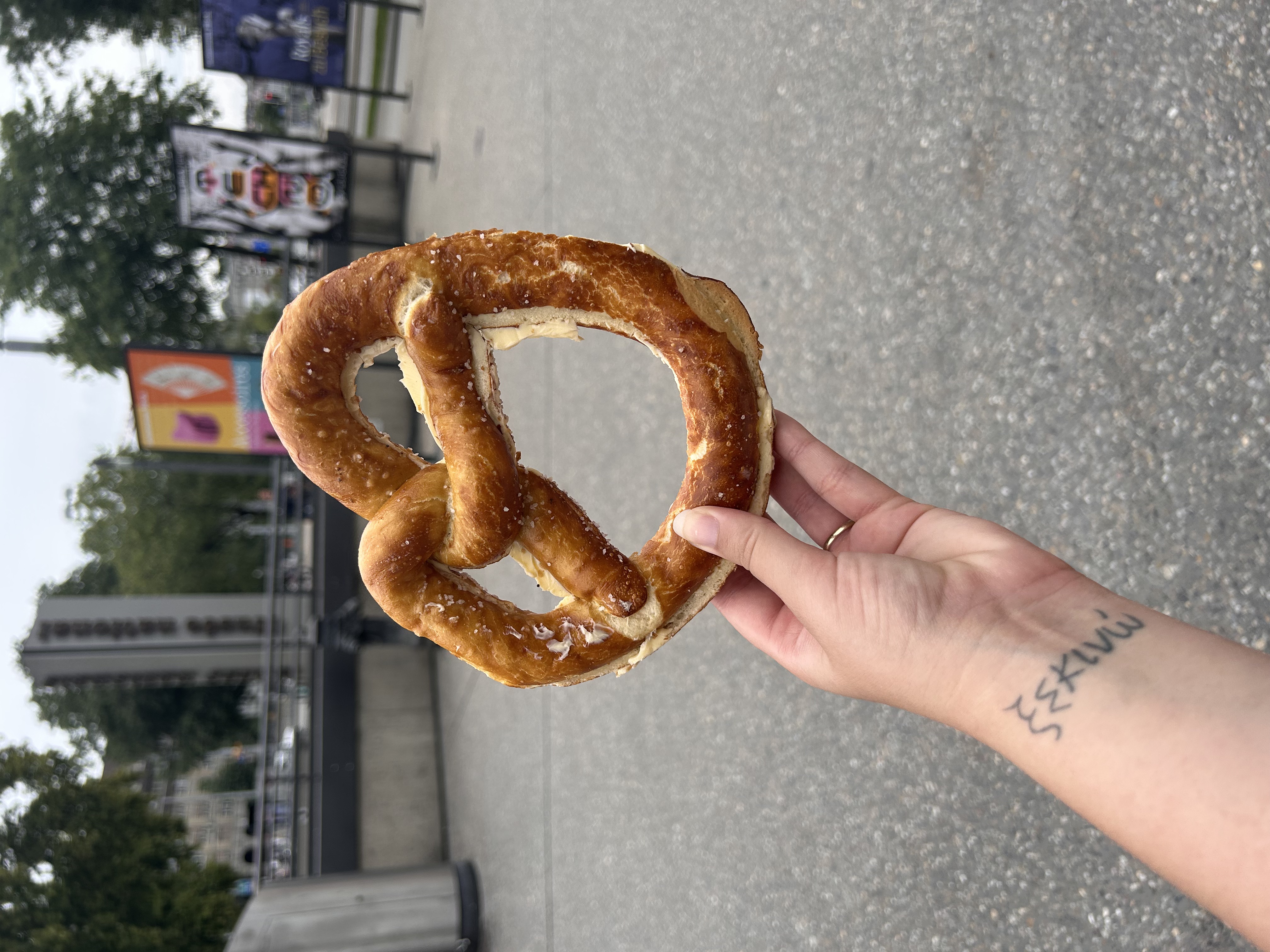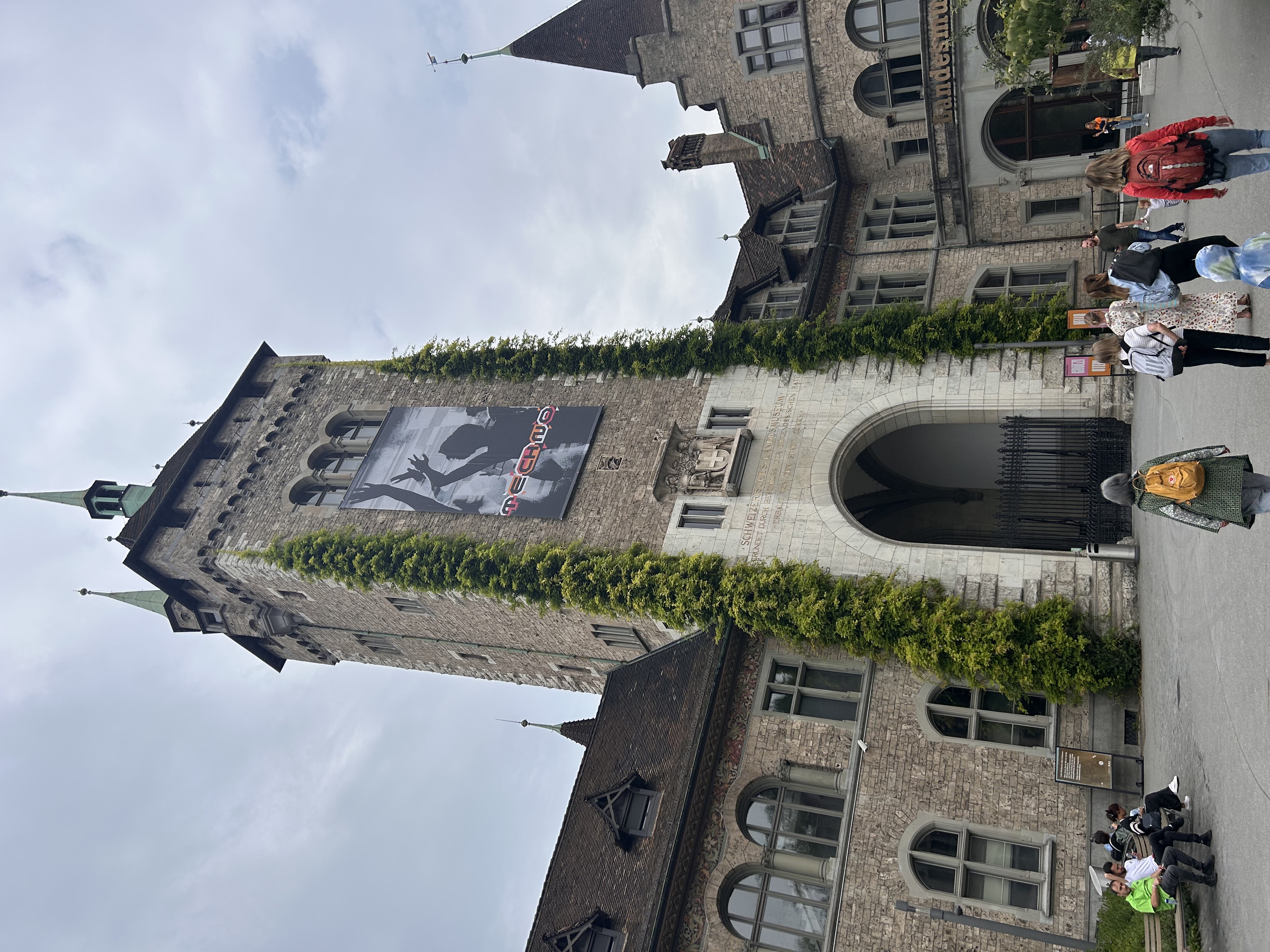My Time at ESO
The Programme
In the middle of 2025 (June to August) I had the incredible opportunity to take part in the 7th ESO Summer Research Programme in Garching, Germany. I applied for the programme back in January, encouraged by my supervisors at the time, but I honestly did not expect to be selected. Coming from Australia, I thought my chances would be lower than those of applicants from ESO’s European partner countries. When I received the acceptance email I was genuinely surprised and absolutely thrilled.
The programme ran for six weeks and during that time we worked full time on our research projects with our supervisors. It was not just about research though, because ESO had an amazing calendar of events and activities each week. We attended twelve lectures and workshops on a wide range of astronomical topics, which really helped broaden my horizons and gave me confidence to talk with people working in adjacent fields.
There were usually three or more seminars happening every day across the ESO and neighbouring Max Planck Institute campuses. We were free to attend as many as we liked, and I loved being immersed in so many different research areas. There were also informal discussions, group chats and coffee talks throughout the week. Everything wrapped up with the legendary Beer Friday, where everyone came together to unwind. The atmosphere at ESO was unlike anywhere I have been. It was warm, enthusiastic and buzzing with ideas, which made it a genuinely motivating space to work in.
One of the highlights for me was taking part in the weekly journal club held in ESO’s large conference theatre. Each week two students presented recent research papers to the group. One week I presented on “Growth of black holes at the centre of early-type galaxies in MOND” by Eappen and Kroupa. I created an annotated version of the paper to accompany my talk, which was a fun new challenge. The feedback I received was amazing. People commented on how clear and concise my presentation was, which was such a confidence boost.
One of the highlights of the programme was having three nights of observation time on the NTT in Chile. We were the last group to use the current instrumentation before it was shut down for upgrades. Our observations targeted supernovae, unusual star-forming regions on the outskirts of galaxies, and included some galaxy imaging.
My Project
My project was titled “Exploring the Growth of Dense Stellar Systems Across Cosmic History” and was supervised by Martyna Chruslinska and Mirko Curti. The aim of the project was to understand the mechanisms behind stellar cluster formation and evolution. I worked on incorporating key equations that describe these processes into an existing semi-empirical galaxy model. By doing this, we were able to explore how much stellar mass and star formation these clusters contributed to the overall star formation history of the universe.
I absolutely loved this project. At first, I was a little intimidated by modelling and computational astronomy, which was actually one of the reasons I chose this topic as my preference. I really wanted to push myself to learn and gain confidence in this area. By the end of the programme I had not only learned a lot but had also discovered that I genuinely enjoy modelling. I now hope to work more in this area in the future.
The experience was incredibly rewarding. It gave me the chance to be involved in cutting-edge research and to develop more independence as a researcher, which is such a valuable skill. It was also exciting to see my work make a real contribution. Some of the plots I helped to generate were shown at a conference only a week after the programme concluded.
As part of the project, I presented my findings at the closing conference for the programme, and the presentation went really well. It was a great way to round off an amazing research experience.
Exploring Germany & Beyond
It is no secret that Australia is half a world away from Germany. My flights took more than 24 hours to get there, so it was really important to me to explore as much as I could while I was over there. I didn’t have a huge amount of free time, and balancing sightseeing with working hard and getting to know the students and colleagues at ESO was definitely a challenge.
Even so, I managed to explore some of Germany, mainly Munich and the surrounding areas, which was an amazing experience. The train system was a little tricky for regional travel, which limited how far I could go, but the local trains were excellent. I had heard plenty of stories about delays, but I didn’t encounter any during my stay.
The food was fantastic as well. One of my definite favourites was Käsespätzle, a cheesy pasta dish that quickly became my go-to comfort food. I also loved how green and vibrant Garching was. The lakes and ducks were adorable, and biking around the area was absolutely beautiful.
I also made great use of the overnight FlixBus services, which were a real game changer. Since I only had two days on the weekend to travel, taking the bus overnight meant I could visit another country and still have time to do chores or catch up on work when I returned. One weekend I spent in Austria, mainly in Vienna, and it was absolutely magical. It was my first proper solo travel experience, which made it feel extra special. The city had some of the most consistently stunning architecture I have ever seen. It was even more amazing when I walked around listening to Vienna by Billy Joel on repeat, the perfect soundtrack for exploring the city.
I also took a four-hour FlixBus trip to Switzerland, specifically Zurich, to visit a friend from Australia. Zurich was such a cool city. It felt modern yet still chic and timeless, with lots of greenery and a beautiful river running through it. I have to admit, I liked Swiss beer more than German beer, please don’t hate me for that! Unfortunately, it was quite rainy during my visit, so I didn’t get to take many photos. On the bright side, the public transport was phenomenal, which made getting around the city really easy despite the weather.
Overall, the entire trip and programme was a life-changing experience that I will remember forever. It has truly shaped me as an early-career researcher and inspired me in so many ways.
FAQ
What was the application process like?
It involved a cover letter, a research motivation letter, and an interview if shortlisted. The interview itself was friendly and low-stress.
Did you need to learn German?
Not really! Everyone at ESO spoke English. I used a few basic phrases for politeness in shops and restaurants, and occasionally Google Translate for groceries, but otherwise English was fine.
Did you have to pay for the programme?
No — flights and accommodation were covered by ESO. As a studentship, we weren’t paid, but we received a small stipend to cover daily expenses.
Have more questions? Feel free to reach out — I’m happy to share more about the experience!
